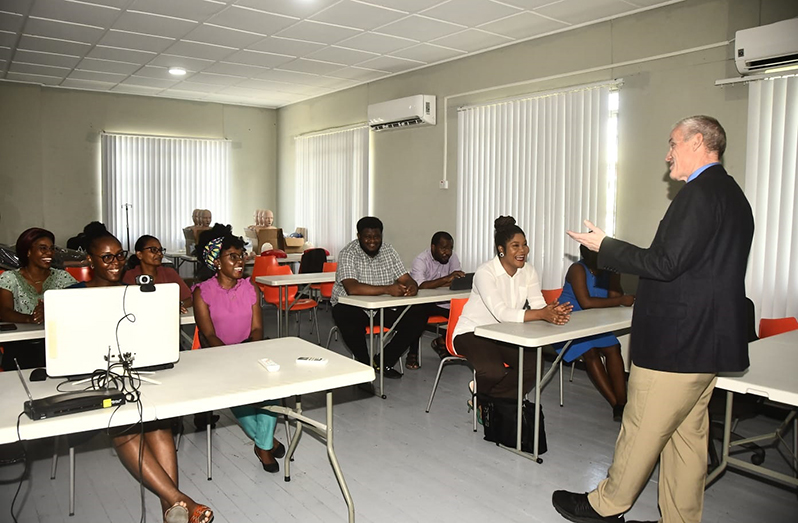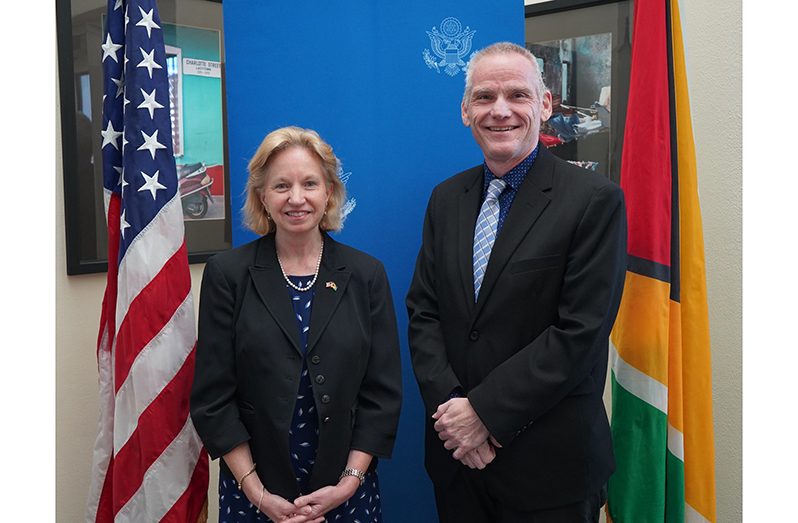THE Georgetown American University (GAU) is primarily a medical school. It is owned and managed by Guyanese. It has a branch in the United States. Its faculty members are based both in the local jurisdiction and abroad.
The management of GAU is convinced that, if the Government’s Transformational Agenda is to be realised, every organisation – governmental and non-governmental – must play a meaningful role conscientiously. In this regard the Education Sector must take centre stage and GAU is prepared to continue to set the pace.
According to writers who specialise in education research, the on-the-job performance of graduates of a university is a fairly good indicator of the quality of the offering of that institution. The graduates of GAU, reportedly, have given the university good reason to be proud. But, according to a senior member of the management team at GAU, the university continues to seek ways to enhance its pedagogy, especially during this digital age.
If pedagogy is to be continuously improved, the curriculum has to be, from time to time, subjected to re-evaluation and lecturers have to be ‘retooled’. Relevant changes must always be considered and experts, when necessary, must be engaged.

A few months ago, the US Embassy, Guyana, made a simple but significant contribution to GAU. Dr. Melissa Varswyk, Chief Executive Officer of GAU informed this publication that “The US Embassy, Guyana, shared an invitation for us to apply to the Fulbright Specialist Programme for an expert trainer in an area of interest. As we are addressing gaps in preparation for international accreditation, we applied for a scholar to assist faculty development, especially in curriculum design and development.”
The Georgetown American University was successful in its application and the services of Professor Mark Ryan, a highly qualified educator, were acquired.
Professor Ryan engaged faculty members in both the face-to-face and online (via ZOOM) modes. His presentations were very interactive. Faculty members were even given the opportunity to ‘interrogate’ their respective courses and include elements that were being discussed. Faculty members, especially the least experienced ones benefitted greatly from Professor Ryan’s input.
The management of the Georgetown American University looks forward to continued developmental/institutional support from the US Embassy. Professor Ryan was indeed ‘GOOD NEWS’, a welcome contributor to the university’s own transformational agenda.



.jpg)








